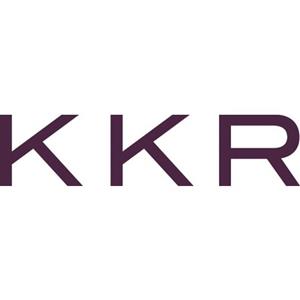Family-owned companies seek refuge in private deals
April 22, 2024, 9:35 pm
Family-owned consumer and retail businesses are eyeing the exit door from the public market, with take-private deals becoming increasingly attractive. The allure of escaping regulatory burdens and market volatility is driving this trend.
Why it matters: The burden of compliance with regulations and disclosure requirements, along with the scrutiny of capital and financial decisions, is pushing family-owned companies towards the private realm. The desire to escape the fishbowl of public markets is strong.
What they're saying: Foley & Lardner partner Steve Barth notes that public markets may not be all they're cracked up to be. The appeal of going private at a fair price, where they can maintain their privacy, is undeniable. However, a family looking to sell could signal underlying issues within the business.
Reality check: While public equity offers liquidity and financial flexibility, these benefits are rare for family businesses. Take-private transactions are on the rise globally, with key players like Blackstone and KKR leading the charge.
Zoom in: Family offices are increasingly entering the deal fray, offering a unique blend of professionalism and familial culture. Preserving the legacy and culture of a family-owned business is paramount in these transactions.
Between the lines: Private equity firms may also be contenders if they agree to maintain the company's culture. The rise of private credit markets is further fueling private equity activity, providing alternative financing options.
State of play: Recent bids to take companies private, like L'Occitane and Tod's, highlight the growing trend of family-owned businesses seeking refuge in private deals. The potential for a capital gains tax increase in the future could accelerate this trend.
Title: Unilever's ice cream empire struggles to find a buyer
Description: Unilever's plan to spin out its ice cream brands faces challenges as potential buyers struggle to afford the hefty price tag. The Anglo-Dutch firm may be forced to retain a minority stake in the business to facilitate a sale.
Why it matters: The massive size of Unilever's ice cream operations makes it difficult to offload entirely, leading to speculation about potential consortium bids and listing options. The company's efforts to create a leaner business could result in job losses.
What they're saying: Senior City figures believe a full sale of the £15bn ice cream operations is unlikely, with interested parties like private equity firms facing financial constraints. Unilever's decision to list the business separately on the stock market could provide an alternative exit strategy.
State of play: Unilever's new chief executive is exploring various options to revitalize the company's performance, including cost-cutting measures and potential listing locations. The decision to scale back environmental and social pledges reflects a shift towards driving company performance.
In conclusion, the trend of family-owned companies seeking refuge in private deals and Unilever's struggles to find a buyer for its ice cream empire highlight the complexities of navigating the business landscape. As regulatory pressures and market uncertainties continue to shape the corporate world, companies must adapt and innovate to stay competitive.
Why it matters: The burden of compliance with regulations and disclosure requirements, along with the scrutiny of capital and financial decisions, is pushing family-owned companies towards the private realm. The desire to escape the fishbowl of public markets is strong.
What they're saying: Foley & Lardner partner Steve Barth notes that public markets may not be all they're cracked up to be. The appeal of going private at a fair price, where they can maintain their privacy, is undeniable. However, a family looking to sell could signal underlying issues within the business.
Reality check: While public equity offers liquidity and financial flexibility, these benefits are rare for family businesses. Take-private transactions are on the rise globally, with key players like Blackstone and KKR leading the charge.
Zoom in: Family offices are increasingly entering the deal fray, offering a unique blend of professionalism and familial culture. Preserving the legacy and culture of a family-owned business is paramount in these transactions.
Between the lines: Private equity firms may also be contenders if they agree to maintain the company's culture. The rise of private credit markets is further fueling private equity activity, providing alternative financing options.
State of play: Recent bids to take companies private, like L'Occitane and Tod's, highlight the growing trend of family-owned businesses seeking refuge in private deals. The potential for a capital gains tax increase in the future could accelerate this trend.
Title: Unilever's ice cream empire struggles to find a buyer
Description: Unilever's plan to spin out its ice cream brands faces challenges as potential buyers struggle to afford the hefty price tag. The Anglo-Dutch firm may be forced to retain a minority stake in the business to facilitate a sale.
Why it matters: The massive size of Unilever's ice cream operations makes it difficult to offload entirely, leading to speculation about potential consortium bids and listing options. The company's efforts to create a leaner business could result in job losses.
What they're saying: Senior City figures believe a full sale of the £15bn ice cream operations is unlikely, with interested parties like private equity firms facing financial constraints. Unilever's decision to list the business separately on the stock market could provide an alternative exit strategy.
State of play: Unilever's new chief executive is exploring various options to revitalize the company's performance, including cost-cutting measures and potential listing locations. The decision to scale back environmental and social pledges reflects a shift towards driving company performance.
In conclusion, the trend of family-owned companies seeking refuge in private deals and Unilever's struggles to find a buyer for its ice cream empire highlight the complexities of navigating the business landscape. As regulatory pressures and market uncertainties continue to shape the corporate world, companies must adapt and innovate to stay competitive.

